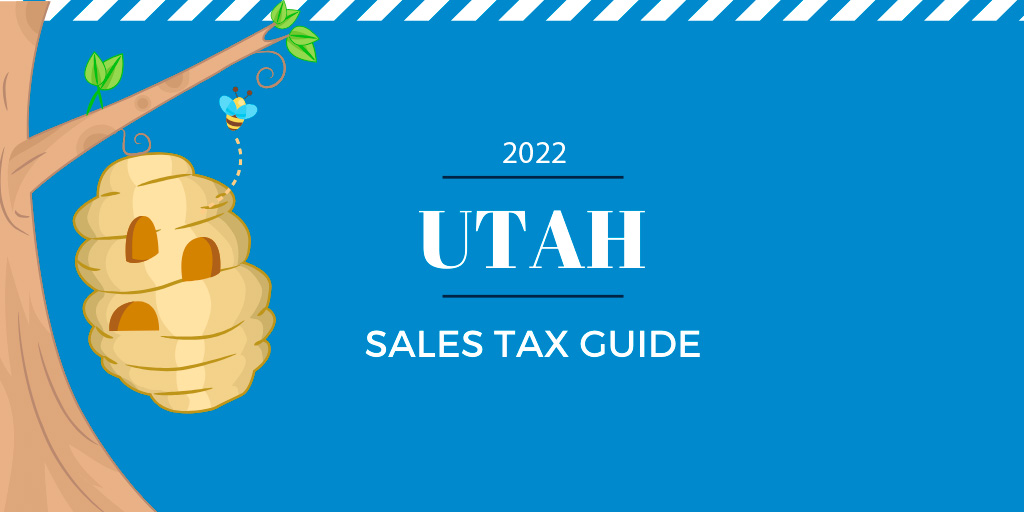Utah is one of the few states that imposes a sales tax on its residents. This tax applies to most goods and services, and is collected by businesses that provide such items to consumers.
Utah State Tax Commission
Businesses that sell taxable items must apply for and obtain a sales tax permit from the Utah State Tax Commission. Once they have obtained a permit, businesses are required to collect sales tax from their customers and remit it to the state on a regular basis.
The Utah State Tax Commission provides a Sales Tax Handbook to help businesses comply with the state’s sales tax laws. This handbook contains information on what items are subject to sales tax, how to obtain a permit, and how to remit taxes collected.
Additional resources for businesses regarding the collection of Utah sales tax can be found on the Utah State Tax Commission website.
Utah Sales Tax Rate
The Utah sales tax is imposed on the sale of goods and services in the state of Utah. The sales tax rate is 4.7%, which is made up of a 4.6% state sales tax rate and a 0.1% local option sales tax rate. There are certain types of purchases that are exempt from taxation, such as groceries, prescription drugs, and some types of clothing. Additionally, some businesses may qualify for a sales tax exemption if they meet certain criteria.
How It Works
Because the sales tax can be quite significant, it’s important for those doing business in Utah to understand how it works. For example, if you are selling products in the state, you will be required to collect the sales tax from your customers at the time of purchase and then remit this money to the appropriate authorities. Additionally, if you are engaging in taxable services as a business owner, you may also be responsible for collecting and paying sales taxes on these transactions.
There are several factors that can impact how much you owe in sales taxes as a business owner in Utah. These include the type of products or services you sell, the location of your business, and whether or not you have any tax exempt status. Additionally, the sales tax rate can vary depending on the county or city in which your business is located.
Some of the items that are subject to the tax include:
-Alcohol
-Tobacco
-Restaurant meals
-Hotel rooms
-Retail items
Sales Tax Transaction
It’s important to note that the Utah sales tax does not apply to all transactions. There are certain types of purchases that are exempt from taxation, such as groceries, prescription drugs, and some types of clothing. Additionally, some businesses may qualify for a sales tax exemption if they meet certain criteria.
If you are starting a business in Utah or are already operating one in the state, it’s important to be aware of the sales tax requirements and make sure you are in compliance. Failure to collect and remit sales tax can result in penalties and interest charges.
Get a sales tax permit in Utah
If you will be selling taxable goods or services in Utah, you will need to obtain a sales tax permit from the Utah State Tax Commission. You can apply for a permit online, by mail, or in person at one of the Tax Commission’s offices.
Once you have been approved for a permit, you will be issued a certificate that you must display at your place of business. You will also be given a sales tax account number, which you will use when filing your sales tax return.
Collecting Utah sales tax
As a business owner in Utah, it is your responsibility to collect sales tax from your customers and remit it to the state.
The amount of sales tax you collect depends on the tax rate in the municipality where your business is located.
To find out the sales tax rate in your area, you can use the Tax Commission’s online Sales Tax Rate Finder. You are required to file a sales tax return in Utah even if you did not make any sales during the filing period.
If you do have sales to report, you must file your return by the 20th day of the month following the end of the reporting period. For example, if you are reporting monthly, you would file your return by February 20th for the January reporting period.
What happens if I don’t pay my sales tax?
If you fail to remit the appropriate amount of sales tax to the Tax Commission, you will be subject to interest and penalties.
Conclusion
If you are doing business in Utah, it’s important to understand the state’s sales tax requirements and make sure you are in compliance. Whether you are selling taxable goods or services, or qualify for an exemption, it’s crucial to keep up-to-date on all relevant regulations so that you can avoid penalties and interest charges. With the right knowledge and planning, you can successfully navigate the Utah sales tax system and focus on growing your business.

She is numismatist, crypto expert and have been active in the profession for over four decades. For nearly six years she was the market analyst and writer for CDN (Coin Dealer Newsletter: The Greysheet) She evaluated, edited and reported current market trends for all US coin and crypto tokens series. Presently She update various numismatic websites and author NGC’s (Numismatic Guaranty Corporation) Weekly Market Report.
